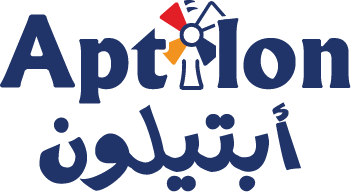Our Expertise
Check the details about each contents of the milk from Extraction to Production process.
Dairy chain control
From farm to consumer
n the Dutch dairy chain they cooperate closely to safeguard the quality of dairy products through means of intensive inspections and collaboration among farmers, dairy companies, suppliers, inspection agencies and knowledge institutes.
Aptilon is proud to be part of this chain. Aptilon and Ausnutria are proud to be a part of this chain, which our producer manage the development of infant formula products.
From the cow or goat to your finished product.
Dutch cow milk
Through our producer Ausnutria cooperation with Farmers they ensure a stable supply of high-quality milk. Together with its affiliated farmers, Farmer guarantees the optimal quality of Dutch milk.
Did you know that the Dutch quality requirements for the cow milk sector are higher than prescribed by the European Union? The cow milks quality is safeguarded in various ways. For example, the milk, from the farm to the production companies, is under the constant control of the Netherlands Controlling Authority for Milk and Milk Products (COKZ) and its quality is safeguarded through means of a chain quality system (CQM) created within the dairy farming sector.
Finally, all farmers comply with the additional requirements specified by Farmel. To be able to ensure the highest quality, the entire production process takes place within a closed system. This means that contact between the product, the air and people is minimized.


Our production process
From Milk to Base Powder
The first step in the production process is pasteurization, the process in which milk is heated to high temperatures to eliminate bacteria and to make it safe for consumption. Next, through means of gentrification, the fat is removed from the milk, resulting in skimmed milk. The skimmed milk then goes through a vacuum evaporation process during which a large portion of the water in the milk is removed.
The concentrated skimmed milk is then mixed with important ingredients. Together, these ingredients form the basis for the infant
formula products. The wet mixture is subsequently converted into high-quality base powder in the drying tower
From Base Powder to Infant Formula
After this, the base powder passes through various inspection points and checks before it is ready for the next step: the dry mixing process. During this process, the base powder is mixed with other important ingredients, such as vitamins and minerals. After once again passing through many inspection points and processes, the powder ultimately reaches the packaging department.
Packed into a final product
Packaging facilities and processes create a controlled packing atmosphere that ensures a long shelf life for the infant formula. Additional quality checks are performed during the packing process. The tins are thoroughly inspected using instruments such as Eagle Vision and X-ray. Finally, samples are taken of the product. All test results must be approved. Only after full approval are products released. This is how we guarantee that baby milk powder complies with the highest possible quality criteria
RESEARCH & DEVELOPMENT
Breast-feeding is the best option for babies. When breast-feeding is not sufficient or impossible, it is important to have access to high-quality infant formula. Aptilon products provides a safe, high-quality and scientifically based infant formula. Our producer R&D department works on composing and further optimizing products daily.
The department consists of three teams:
The Product Formulation team translates the wishes of our customers and market requirements into product concepts
and is responsible for ensuring that the latest insights into nutrition and the effects of nutrition are applied in actual
practice.
The Nutrition Research team is constantly looking for new knowledge about the nutritional needs of babies and
toddlers. This expertise is crucial for developing products on the basis of sound scientific insights.
The Process Research team applies dairy processing expertise for the purpose of making optimal use of the
various milk flows and of the milk’s natural composition.
